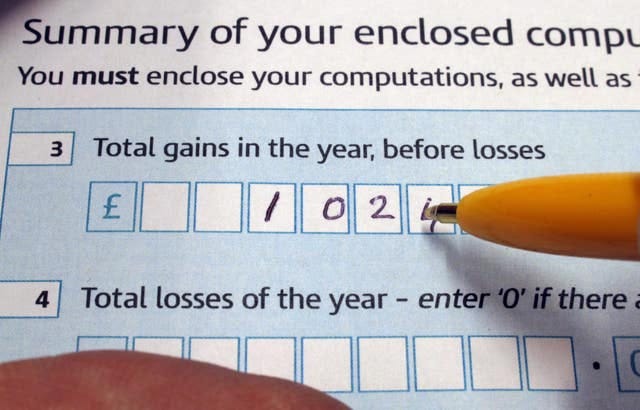The financial ‘penalties’ women often face and how to tackle them
Kirsty Anderson, a pensions specialist at M&G Wealth, highlights some steps that women could take to improve their financial position.
(Envato Elements)
Women often face financial “penalties” throughout their lives – and for many – the cost-of-living crisis has only added to the strain.
Four in 10 (40%) women say their financial situation has deteriorated during the living costs squeeze, as do 30% of men, a report from M&G Wealth has revealed.
Starting a family can have long-lasting repercussions for women’s finances – and the level of support given by employers can make all the difference.
When women return to work from parental leave, there can be impacts on career progression, says Kirsty Anderson, a pensions specialist at M&G Wealth.
“If women don’t receive the right levels of support on their return to work, it can often result in a lack of confidence in applying for career progression or challenging our pay level,” she cautions.
Gaps in women’s savings can be difficult to make up (Alamy/PA)
A salary dip, combined with expensive childcare costs, can create gaps in savings that can be very hard to make up.
M&G’s Family Wealth Unlocked report found women are twice as likely as men not to save into investments at all.
Asked about the obstacles to women investing their cash, Anderson says that, having discussed it with female friends, other priorities, “which are generally to do with children and household-related activities”, can get in the way. It’s also hard sometimes to know where to find information.
She continues: “I do, however, also see that this is changing. From both research and speaking to other women my own age (mid 40s), more women are feeling empowered to research their options, find out more about how different types of investment work and make their own choices.
“At the end of the day, we’ve worked hard for our money and want to see it work for us.”
She suggests, firstly, if you have an employer, finding out about their pension scheme.
Find out about your employer’s pension scheme (Gareth Fuller/PA)
“Many of us will be automatically enrolled into a pension scheme – which is a great start – but is often not enough,” she says.
“Many employers will help us to save more, through matching any contributions we make up to a certain level.
“One thing to watch out for is that when we’re automatically enrolled into a pension, we’re usually placed in what is referred to as a ‘default investment option’ which often won’t tie up with our views or attitudes to investing, so it’s worth looking at all of the support available from your company pension and making an investment selection that’s right for you.
“It’s also a good idea to save into different types of investment – if you can afford it.”
Remember too that the value of investments can go down as well as up, and some may carry more risks than others.
Anderson suggests looking into how tax allowances can help you maximise your savings and income (PA Archive)
Anderson also highlights how the tax advantages of both pension and ISA saving can be used to get an income boost.
“We all have various tax allowances and exemptions so it’s worth looking into how we can use them to maximise our savings and income over time.
“I would always suggest that anyone looking to invest speaks to a financial adviser to ensure they get a personalised solution that suits their own needs.”
And in a strong wage-growth environment, it could also be time to ask for a pay rise.
“Preparation for meetings regarding pay rises can really help, so for example, keeping a record of accomplishments and tasks achieved can really help demonstrate a person’s value,” says Anderson.
“Employers should also be able to answer confidently any question relating to pay transparency between men and women at a firm.
“At the end of the day, we’ve worked hard for our money and want to see it work for us” - Kirsty Anderson, M&G
“But it often isn’t just about salaries. It may be that flexibility around working hours and work patterns, compressed hours, job share, location, et cetera, can all be highly prized when trying to work around our personal lives.
“Women’s confidence also plays a part here. There are so many anecdotal stories of women who are affected by ‘imposter syndrome’ and therefore undervalue their worth.
“Similarly we hear all the time that a higher pay rise often comes down to the person having the confidence to ask for it.
“Again, speaking to my female friends who are juggling working with parenting, it’s about getting a balance that’s right for their family.
“If they feel valued by their employer and are allowed that flexibility, it’s very likely their output will be higher and they’ll also feel empowered to have an honest discussion about their pay and benefits.”
Having discussions about household finances is vital (Alamy/PA)
Discussions at home about finances – including pension wealth – are also vital.
Recent research by Scottish Widows indicates at least six in 10 (60%) divorced women didn’t discuss pension assets during divorce, often because they weren’t aware they should.
“A pension, alongside the family home, is often the biggest asset a couple may own,” Anderson points out.
She also highlights the importance of discussing tax allowances as a couple.
“If everything is in one person’s name, it’s likely you’ll pay more tax as a couple,” she warns.
Some couples may benefit from the Marriage Allowance – which enables one person in a couple to transfer some of their tax allowance to their spouse or civil partner.
There are some other things women may be able to do right now to improve their finances.
Anderson suggests checking for any gaps in national insurance (NI) contributions, which could count towards the state pension, and seeing if it’s worth filling them. People could pay voluntary contributions, or some may be eligible for NI credits. Visit the Government’s State Pension page for more information.
Planning how you’ll pay off any debt and saving on a regular basis are also good habits – and cancelling little-used subscriptions could help.
To make sure you’re getting the right help paying for childcare, visit Childcare Choices.






